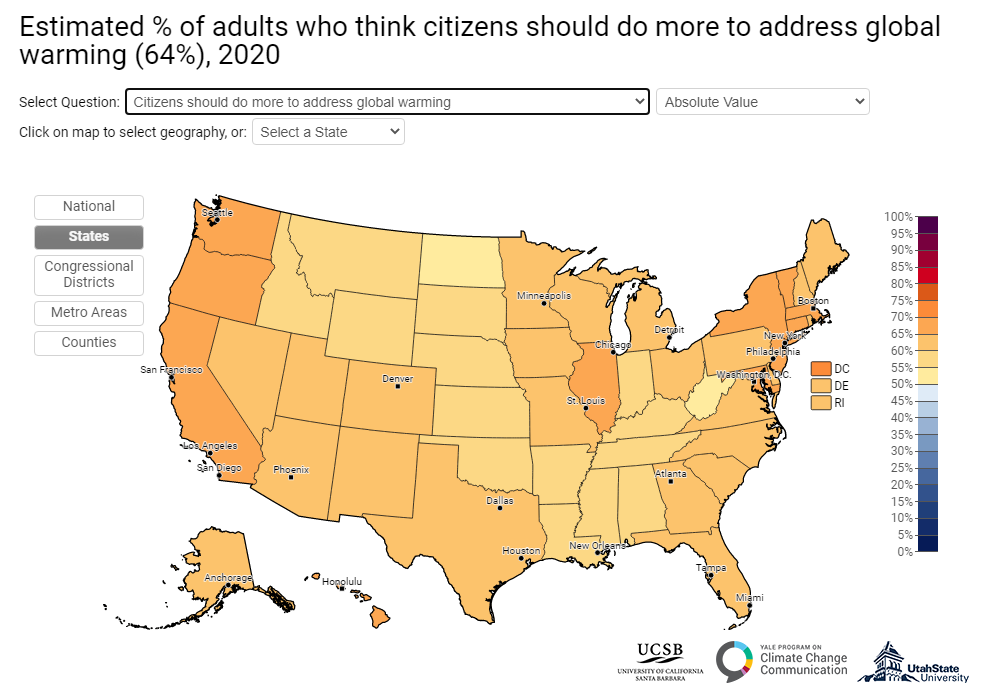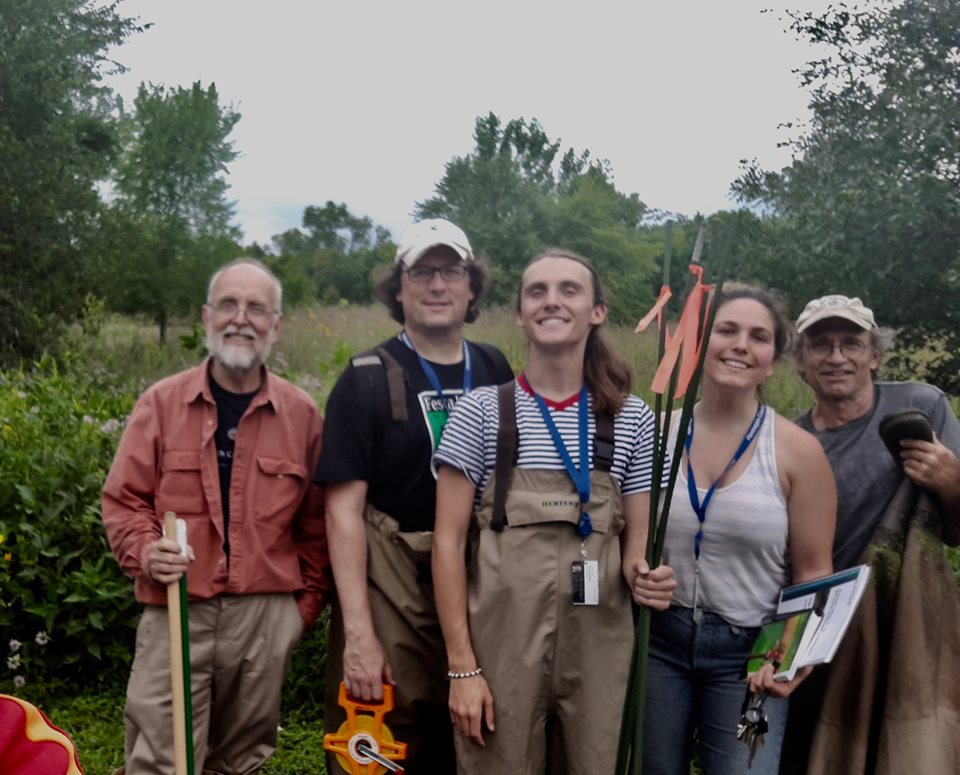In early January 2021, the 117th Congress will get down to business in Washington DC. Later in the month, a new presidential administration will take office. Changes in the leadership of our country always create energy and opportunity – and right now, America is facing a number of environmental challenges that urgently need that extra attention.
In this series of blog posts, we’ll look at those challenges, the common-sense solutions that could bring quick and effective progress, and the actions our leaders can take to turn those solutions into on-the-ground reality.
Since 1922, the Izaak Walton League has offered a unique combination of community-based conservation, common-sense solutions to environmental challenges, and a fearless, can-do attitude in tackling the most pressing problems of each decade. In the 1960s, we were the first to suggest that ordinary people could collect valid and valuable data on water quality – and we’re still the only organization working nationwide to train people to do it. In the 1990s we were the first environmental organization to form a productive partnership with the forestry industry to help them implement more sustainable practices. And before the turn of the millennium, already recognizing the urgency of climate action, we fought to ensure that coal-burning power plants with decades of remaining useful life would not be allowed to dodge modern pollution controls.
Our efforts in the early 2000s made a big difference in improving air quality and in reducing mercury emissions that polluted waterways and made fish unsafe to eat. But they were just the first step along the challenging path to addressing the climate crisis. Fortunately, the Izaak Walton League is no stranger to long and difficult conservation battles.
First, the bad news about what we’re up against: 20 years ago atmospheric carbon stood at about 368 parts per million – already dangerously high, according to scientists – and as we enter 2021, that concentration has risen to 413 parts per million. We are going the wrong way, fast.
Now, the better news: The League is increasingly in good company in our efforts to slow and reverse climate change. In 2020, 72 percent of Americans recognized that global warming was happening, and 57 percent understood that it was primarily caused by human activity. Sixty-three percent of us are worried about global warming, and even more – 71 percent – believe that global warming will harm the natural world, including plants and animals. Substantial majorities of Americans now support climate solutions like expanding renewable energy, regulating carbon dioxide as a pollutant, and offering tax incentives to people who purchase solar panels or energy-efficient vehicles.

Our stance on climate change is increasingly in line with the views of our country’s leaders, too. President-elect Biden has already said that climate action will be a top priority for his administration. That agenda was not only supported by more American voters than any presidential platform in history, thanks to extraordinarily high voter turnout, but polling indicates it was specifically this plank that motivated many Americans to cast their ballots for the Biden-Harris ticket.
Clearly, people, organizations and politicians who aren’t taking the climate crisis seriously are getting left behind in our national conversation. But the League, as usual, is determined to be a leader.
By focusing on climate change, we’ll be able to advance our legislative priorities at the federal level, bringing about new policies that not only reduce carbon emissions and make our communities more resilient to extreme weather, but that also advance conservation causes the League has championed for a century. By offering our ideas as solutions to climate change, we’ll also be able to preserve habitat for wildlife, build healthier soils that support productive agriculture, get people outdoors into nature and improve water quality.
These solutions are fast, effective and good for people. Rather than promoting government overreach, they empower ordinary Americans to take control of their own energy supply, enjoy more nutritious food, continue to pursue outdoor traditions and be a part of showing the world that the United States is still a powerhouse in creating innovative ways to solve daunting challenges while boosting our economy at the same time.
By focusing on climate change, we’ll also be able to carry forward our legacy of leadership in community-based conservation. With a majority of Americans in every state agreeing that citizens should do more to address global warming – including 61 percent in Iowa, 65 percent in Virginia, and 66 percent in Illinois – it’s reasonable to wonder how our chapters would continue to attract and engage new members if they didn’t offer opportunities for people to work with like-minded neighbors on projects that can help our planet begin to return to a safe climate system.
Directly confronting the threat of climate change is a key component of ensuring the League can maintain its status as one of the most effective and successful conservation organizations on both the local and national level. Climate change – which threatens virtually every aspect of both human and natural communities – is the natural resource battle of our generation. Ikes of the past, and those of the future, are counting on us to do something about it.

Like many fights we’ve gotten involved in before, the battle will be a long one. But swift and decisive action is crucial right now, as the first 100 days of the 117th Congress and the Biden Administration present unique opportunities to start changing our climate trajectory.
For example, in the coming months President-elect Biden can fulfill his promise to immediately re-enter the United States into the Paris Climate Agreement and begin working to meet the emissions reduction commitments we set for ourselves in 2015. The Biden Administration can lead the way on reaching those goals by setting new federal energy procurement standards that focus on energy efficiency and clean energy in the government’s own buildings.
The new administration can then take action to restore soil health and protect wetlands, solutions that can keep huge amounts of carbon safely out of the atmosphere while increasing the resilience of our agricultural sector, improving our water quality and providing crucial habitat for wildlife.
Meanwhile, Congress can invest in the energy efficiency improvements and clean energy infrastructure we will need to reduce our carbon emissions without sacrificing indoor climate control, a functioning transportation network, productive factories and all the other energy uses that keep our people and our economy thriving.
At the same time, Congress must protect habitat – including connections between habitat areas – to help wildlife adapt to the shifting weather patterns that will inevitably be upon us in the coming decades. And our national leaders must provide assistance to people who are hurt by climate hazards like extreme storms and sea level rise, including by ensuring that the people most at risk from climate change will have opportunities to contribute to the process of deciding how to take action to confront the crisis.
Addressing climate change will require a sustained and dedicated effort over many years. On the eve of our centennial celebration, with many extraordinary victories behind us and many more sure to come, the Izaak Walton League has shown that it has the strength and the staying power for that kind of fight. Indeed, our continued survival as an organization depends now on our willingness to become leaders on a conservation challenge that is rapidly rising on the priority lists of Americans from every region and of every political persuasion.
Climate change is a serious threat, to be sure, but it may also be the greatest opportunity yet for the League to truly leave its mark on conservation history. Our actions in the first 100 days of the new administration and the new Congress will be crucial in showing that we are ready to rise to emerging challenges and continue defending outdoor America into our next 100 years.
Learn more about climate science and solutions